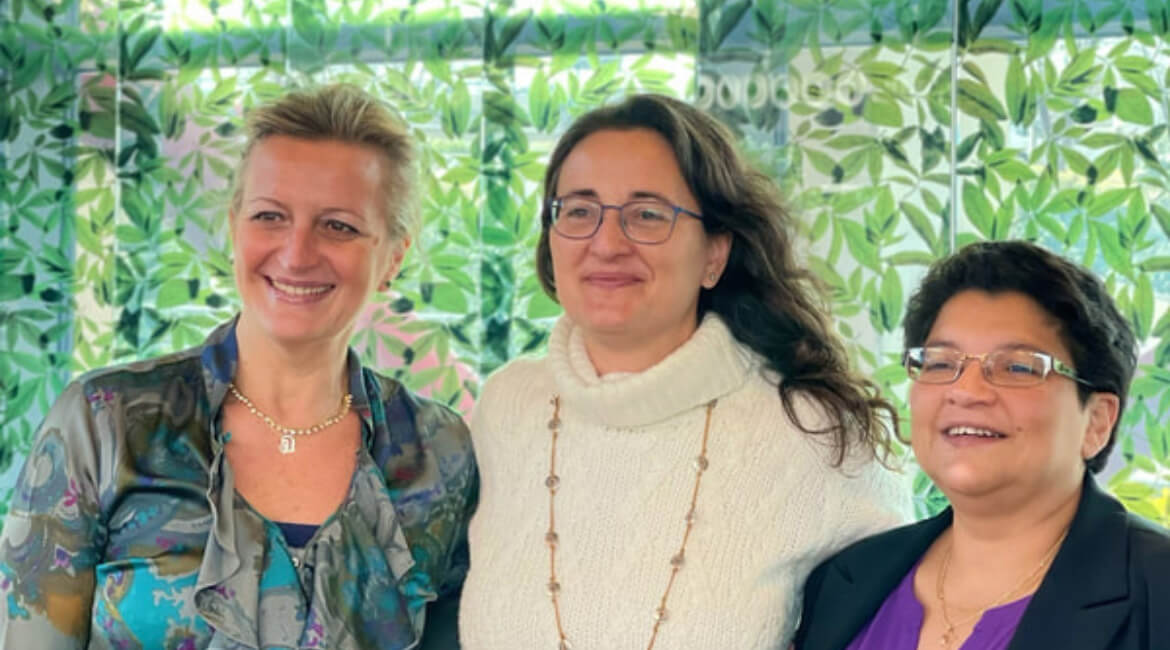A team of researchers from the University of Roehampton, University of Barcelona in Spain, and University College Cork in Ireland have been recognised for their innovative approach to align national research and innovation strategies, and fund new research on the relationship between nutrition and immunity.

Dr Adele Costabile (left), Dr Maria J Rodríguez-Lagunas (centre), and Dr Silvia Melgar (right) have been acknowledged for their contributions to enhancing our understanding of the links between nutrition, immunity, and their impact on infectious and metabolic diseases.
The team's research area primarily focuses on the connections between nutrition and health, nutrition and the immune system, and nutrition-related public health interventions, which often fall into the gap between the agricultural and health domains. Their latest project aims to investigate the impact of beneficial diets on the immune systems of pre-diabetic patients and their potential to counteract infections.
To achieve their objectives, the team will utilise a combination of clinical, in vitro (cell systems), and in vivo (animal model) approaches. They will study the impact of a seaweed bioactive supplement and a diet rich in components from a Mediterranean diet on Salmonella typhimurium infections in pre-diabetic subjects.
This research is part of an ongoing project that is being funded by the Research State Agency (Spain), the Health Research Board (HRB, Ireland), and the Medical Research Council (MRC-UKRI, UK) via the NUTRIMMUNE’ Grant of the Joint Programming Initiative a Healthy Diet for a Healthy Life (JPI-HDHL).
The team's findings will provide evidence on the potential of these nutritional interventions to counteract infections, which is highly relevant to society's efforts to reduce instances of type 2 diabetes.
Dr Adele Costabile said, ‘This study holds particular significance in terms of supporting a transition towards a more sustainable and healthier diet, with an emphasis on optimising resource utilisation as a key motivating factor’.
